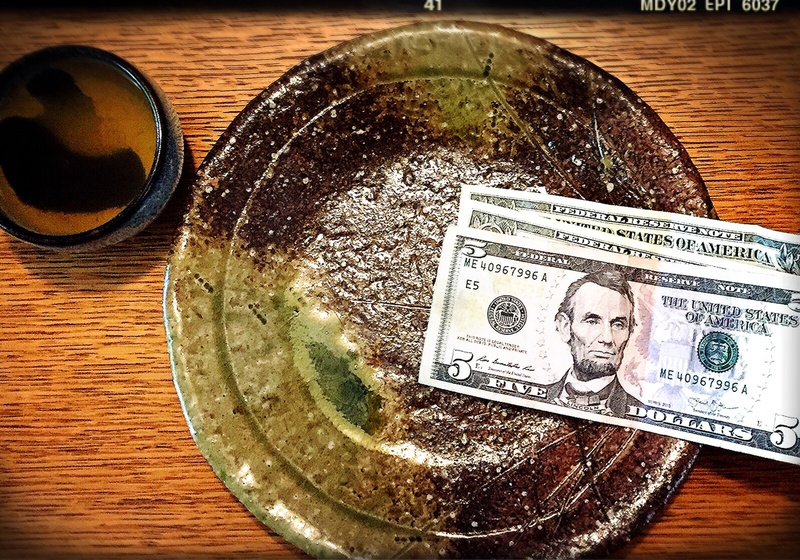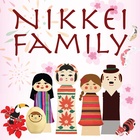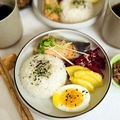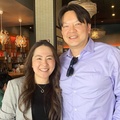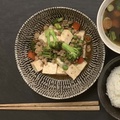I don’t remember exactly how old I was when this happened—maybe nine or ten—but I distinctly remember what the hotel room looked and smelled like. The bedspreads were ugly and itchy. There was a musty smell to everything, and we figured it was because the housekeepers never really cleaned, just moved the vacuum a few times over the carpet and called it a day. I refused to drink out of any of the glasses because I swore I saw a distinct lip print on the edge of one of the ones wrapped in the crinkly white paper that said, “Sanitized For Your Safety.”
When it came time to leave, one of my brothers was mulling over how much of a tip to leave for the services we never received. My mom stepped in and put a big wad of cash on the table, an amount that you might leave if you were personally carried to your room on piggyback, laid in a bed covered in rose petals and then given a foot massage for three hours.
When the rest of us tried to protest, my mom waved us off (I think it was the early, Nisei version of “Talk to the hand”) and said, “We don’t want them to think that Japanese people are cheap.”
So there it was. The sentence that kind of shaped who I was, how I lived my life, and what even creeps into the parenting of my own kids. I learned that day that my actions not only represented my own experiences and upbringing, not only the character and values of my parents, but embodied and reflected on my entire culture. That’s a pretty heavy thing to lay on a kid who’s still wearing a retainer to bed and busy basing her entire life on The Brady Bunch.
But it stuck with me. Every time I thought of pushing back at an overbearing co-worker, or complaining about substandard service at a restaurant, the tiny voice in the back of my head would chime in with, “Man, they’re going to think Japanese people are the worst.” Granted, I might still go ahead and give that office mate a piece of my mind, or send that moldy piece of toast back to the kitchen at Denny’s, but I might just feel a little more guilty about it than most people would. And I would certainly apologize afterwards—maybe it’s the equivalent of bowing deeply and intoning a sincere, “Gomennasai.”
While there are certainly more Japanese Americans and Asians in the public eye now, I remember one of the few Asians who stood out in the media when I was growing up was Yoko Ono—how uncool was it that the person thought to be responsible for breaking up the beloved Beatles was Japanese? I always thought of how hazukashii this was for the Japanese people, and how I’d never be able to walk into a record store without some accusatory glances being shot my way. (On a trip to Japan around seven years ago, I found out I’m actually related to Yoko Ono. Which, much to my horror, makes me even more responsible for the Beatles breakup—and some of Yoko’s music.)
And while I’ve tried to not subject my own kids to this culture guilt, it’s definitely still there. I’ve always been overly concerned with my two girls doling out their “pleases” and “thank yous” and although that might be just chalked up to good manners, I can’t help but think that my intentions aren’t so pure—maybe it’s just my underlying desire to make sure that my Hapa daughters put a positive face to the new generation of Japanese Americans. Or as my mom would say, “We want everyone at Chipotle to think that Japanese people are really polite.”
The topic even came up recently in a Facebook group I belong to consisting of Japanese Americans and others who grew up within the JA culture. It was spurred by the arrest of a beloved Japanese American high-school basketball coach who allegedly had an affair with one of his student players. Although there was plenty of discussion about his guilt or innocence, there was also dialogue about what his arrest meant to the JA community, and how it reflected on all Japanese Americans. There was a mixture of responses to the culture guilt aspect of his arrest, but one person brought up a valid point—because of the rarity of Japanese Americans being accused of crimes in the media, it would definitely bring about anti-Asian backlash which in the end does end up hurting the entire community.
I’m not saying it’s necessarily always a bad thing, this overwrought concern with being the face of your culture at all times. It did instill in me a desire to act honorably (well, most of the time) and be mindful of how my actions might reflect on my Japanese peers. Growing up in a culture where I was definitely a minority, it did make sense that our behavior would be more scrutinized and in the spotlight. But I’m trying my best to shed those nagging voices, and remember that my actions—and that of my children—are ultimately a reflection of the person as an individual, and there is harm in judging an entire culture on the basis of an individual’s actions.
Or maybe I’m just trying to not feel so guilty about breaking up the Beatles.
© 2015 Marsha Takeda-Morrison


